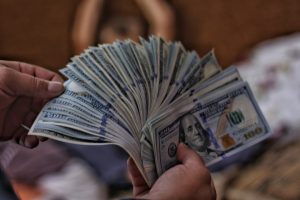The foreign exchange market, also known as the forex market, is the largest and most liquid financial market in the world. It involves buying and selling currencies for various reasons, such as international trade, investment, and speculation. As a result, banks play a critical role in the forex market, as they provide the necessary liquidity and facilitate transactions between buyers and sellers.
Banks profit from the forex market in several ways. The most common ways are through the spread, commissions, and trading profits.
Spread
The spread is the difference between the bid and ask price of a currency pair. The bid price is the price at which a buyer is willing to purchase a currency, while the ask price is the price at which a seller is willing to sell a currency. The spread represents the cost of trading and is usually denominated in pips, which is the smallest unit of price movement in the forex market.
Banks profit from the spread by offering competitive pricing to their clients. They buy currencies at the bid price and sell them at the ask price, generating a profit from the difference between the two prices. Banks can also widen their spreads during periods of high volatility or low liquidity to protect themselves from market risk.
Commissions
Banks can also earn commissions by charging fees for their services. For example, they may charge a commission for executing a trade, providing research and analysis, or offering consulting services. These fees are usually based on a percentage of the transaction value and can vary depending on the size and complexity of the trade.
Banks can also earn commissions by providing liquidity to other market participants. For example, they may offer a market-making service, which involves quoting prices for currency pairs and standing ready to buy or sell at those prices. In exchange for providing liquidity, banks can earn a commission on the spread or charge a fee for the service.
Trading profits
Banks can also profit from the forex market by engaging in proprietary trading. This involves using their own capital to trade currencies for profit. Banks have access to a vast amount of information and resources, such as research, analysis, and trading platforms, which can give them an edge in the market.
Banks can also use their trading desks to facilitate customer trades and take a position in the market at the same time. This is known as “piggybacking” and can generate additional profits for the bank. However, it is important to note that banks are subject to strict regulations and must manage their risk carefully to avoid losses.
Conclusion
In summary, banks profit from the forex market by providing liquidity, charging commissions, and engaging in proprietary trading. The forex market is a complex and dynamic market, and banks play a critical role in ensuring its smooth operation. However, it is important to note that the forex market is also subject to various risks, such as market risk, credit risk, and operational risk. Therefore, banks must manage these risks carefully and adhere to strict regulations to ensure the safety and stability of the financial system.





